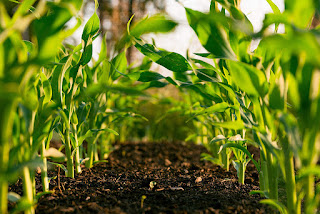The agriculture industry’s
growth is rising every year. The tech
trends are also in the agriculture industry. In this blog, we are going to look
on the 5 agriculture tech trends in 2023 that you need to know. Machinery
trends are not new trends but innovation in machinery is new.
1). Precision Agriculture –
It is the topmost agriculture tech trend of
the year, and it refers to the agriculture resource management strategy. This
process includes data collection, process evaluation and insights through which
farmers can optimize productivity and soil quality. It helps to improve the –
·
Resource use efficiency
·
Sustainability
·
Profitability
·
Productivity
·
Quality
2). Indoor Vertical Farming –
Indoor vertical
farming is the biggest agriculture trend through which farmers don’t have to
face the limits during the approach of indoor vertical farming. Due to modern
technology, farmers can easily increase crop yield in limited spaces.
What is Hydroponics?
It is a gardening practice
through which we can grow plants in water and nutrient solutions.
3). Bee Vectoring Technologies –
Getting an environmentally safe
crop protection system is possible with Bee Vectoring Technologies. BVT uses
commercially reared bees to deliver targeted crop controls through pollination,
replacing chemical pesticides with an environmentally safe crop protection
system.
Bonhoeffer Machines is the
leading supplier of agriculture machinery like chainsaws, brush cutters, lawn mowers,
earth augers etc.
4). Livestock Farming Technology –
The trend of Livestock farming
technology has been popular among farmers with data-driven history and insights.
This technology improves streamlines
farm management, improve animal care, and boost productivity.
5). Farm Automation –
Farm automation integrates
agricultural machinery, computer systems, electronics, chemical sensors, and
data management to optimize equipment operation and decision-making, leading to
decreased human input and error. This technology is being widely adopted due to
benefits such as decreased labour time, increased yields, and efficient resource
utilization. Farmers are using automated harvesters, drones, autonomous
tractors, seeding, and weeding to revolutionize the way they cultivate their
crops, while the technology itself ensures reliable operation, precision, and
accuracy.

Comments
Post a Comment